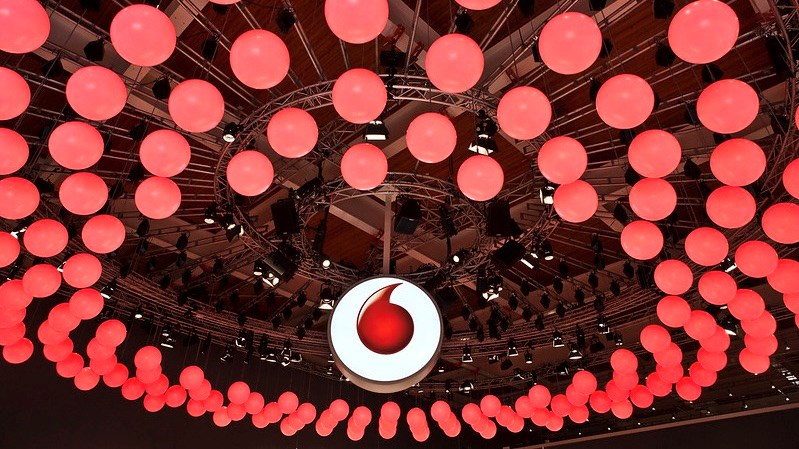
- Vodafone sees growth opportunity in SME sector
- Lining up a number of initiatives and offers to meet needs of small businesses
- Focus is on advice and help as much as services and technology, says executive
Like all other telcos, Vodafone is looking for new revenue growth opportunities as traditional lines of business get squeezed, and, like many of its peers, it has spied an opportunity in the small- and medium-sized enterprise (SME) market in key European territories.
According to Andrew Stevens, Director of UK Small & Medium Business at the operator, “significant investment” is being channelled towards the development of support services that, Vodafone hopes, will help it become a “SME champion.” (The financial details of its investments are not being shared.)
The move makes sense, but it’s a rocky road: For decades telcos have coveted the aggregate spending of millions of small businesses but have largely failed to develop a strategy that makes sense, and is affordable, to SMEs while delivering business benefit to the operator.
But Vodafone reckons it has the formula to make this work, with a mix of support as well as communications services that can be provided digitally as well as via human interaction, and also believes that a business opportunity worthy of its efforts exists.
In the UK, SMEs account for about 31% of business turnover and about 28% of business employees, according to a UK government report. Vodafone is expecting the number of “trading SMEs” – companies with between 10 and 250 staff – will grow from about 245,000 now to about 265,000 by 2025, while the spending on ICT by that segment of the business market is expected to grow by 12% CAGR, driven by growing demand for services such as cloud and hosting (where spending is expected to grow at 19% CAGR) and accelerated by the shift in work patterns driven by the current pandemic.
So what Is Vodafone actually doing to attain champion status? It has already launched (in July 2020) the V-Hub, an online resource for SMEs in the UK, Germany, Italy and Spain that offers on-demand guides to various aspects of running a digital business (website creation, digital marketing, remote working, cybersecurity and so on). It has also built the Vodafone Marketplace, an online menu of tools and applications for business users.
And following from its previous offer to SME customers of six months of free broadband and six months’ free use of Office 365 during 2020, it is now offering free broadband for 2021 to UK companies with up to 50 employees (including existing customers that want to upgrade) if they sign up for a three year fixed broadband service contract.
For Stevens, they key to success if the provision of information and support. “What we're now trying to achieve is a kind of digital transformation as-a-service, almost as an advisory piece that we've started through the V-Hub platform. And that's all about educating the SME community, providing a free service, which then helps that digital transformation journey, because… [many SMEs] don't know the path they should go on. So what we're trying to offer is a partnership approach via an advisory service, which we think is relatively unique… underpinned by our 5G connectivity and broadband offers.”
Part of that support comes in the form of advisers – in the UK Vodafone has 10 dedicated staff to advise SMEs, complementing the digital support and web chat agents, with the opportunity to flex up the human resources as demand grows, says Stevens.
And according to Vodafone, the V-Hub is proving popular with businesses: It says there have been more than 250,000 unique visits to the portal across the four European countries where it's targeted during the past four months alone.
The Vodafone man is coy about what comes next, but says there is a raft of announcements in the pipeline for 2021.
Security is set to feature for sure, as Vodafone has already announced a tie-up with Accenture to developed managed security services to SMEs and other enterprise users across Europe: Those services had been set to go live by the end of last year. (See Vodafone Business to Offer Managed Security Services to SME and National Corporate Businesses in Europe.)
So is Vodafone heading for a gold medal in the SME market? Camille Mendler, Chief Analyst, Enterprise Services at the Service Provider & Communications team of research house Omdia (formerly Ovum) has long tracked the market and says Vodafone stands as good a chance as any of success.
“Vodafone genuinely performs better than most telcos in SME outreach and service bundles,” she says in an email to TelecomTV.
“It’s serious about making more money out of small businesses – partly because it’s getting tougher to move the needle in larger accounts. In a global benchmark of 130 telcos conducted by Omdia, Vodafone came in the top 10 for B2B engagement. It’s talking to smaller businesses about solving problems rather than simply pushing tech. Its websites are easier to navigate but it also offers human interaction, for example via its Prime Contact service.”
And she believes the free broadband offer is “not just a publicity stunt – it reflects the reality that broadband isn’t the main event for SMEs compared to digital marketing, e-commerce and collaboration tools. Wrapping 5G with these productivity tools, network security and a digital advisory service is the best way for telcos to make money in the SME universe.”
But Mendler notes that all CSPs such as Vodafone have a way to go to impress small business customers. “Telcos are mediocre in how they deal with SMEs – they are light years behind other industries. UPS, Xero and banks such as Barclays and KBC put them to shame,” she notes.
- Ray Le Maistre, Editorial Director, TelecomTV
Email Newsletters
Sign up to receive TelecomTV's top news and videos, plus exclusive subscriber-only content direct to your inbox.




